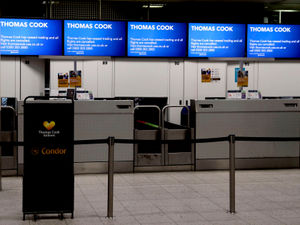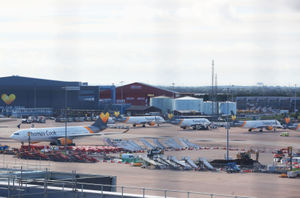Express & Star comment: The wrong direction of travel
Thomas Cook is the latest high street staple to bite the dust, and we have nothing but sympathy for its 21,000 staff.

But in recent years the firm has become another example of a company failing to heed the lessons of the past.
It has been a long way down for the huge global travel group, which at its peak had annual sales of £9 billion, 19 million customers a year and operated in 16 countries.
More coverage:
Its fate was sealed by a number of factors, but as is so often the case, an unwillingness to shift with the times would eventually lead to the serious financial issues that led to its downfall.
A £1.5bn loss reported in May was the first sign of the looming disaster, while the news that orders were down due – according to the company – to customers delaying holiday plans because of Brexit was a further blow.
When a rescue deal involving Wolves owners Fosun went south, it was clear that the writing was on the wall.
It is a far cry from the Thomas Cook of yesteryear.

Let us not forget, this was one of the oldest and certainly the most famous name in travel, dating back nearly 180 years to the earliest organised tours.
It went on to become a global force, pioneering the first round-the-world packages and providing tailor-made holidays for practically any budget.
The phrase “Don’t just book it – Thomas Cook it!” is one that few will forget. But the truth is that the warning signs have been there for all to see for some time now.
Thomas Cook was on the brink of going bust eight years ago when profits plummeted, before being saved by an emergency bank loan.
A giant £2bn debt pile was never likely to disappear overnight, and despite a shareholder fundraising drive, it is no surprise to see the old problems return to haunt the company.
The firm simply had too many high street branches, and a lack of management control meant it could no longer compete in an increasingly tight market. While there have been calls for a government bailout, using taxpayers’ cash to help out a private company sets a difficult precedent.
Thomas Cook is not the first major firm to fall, and sadly it will not be the last.





